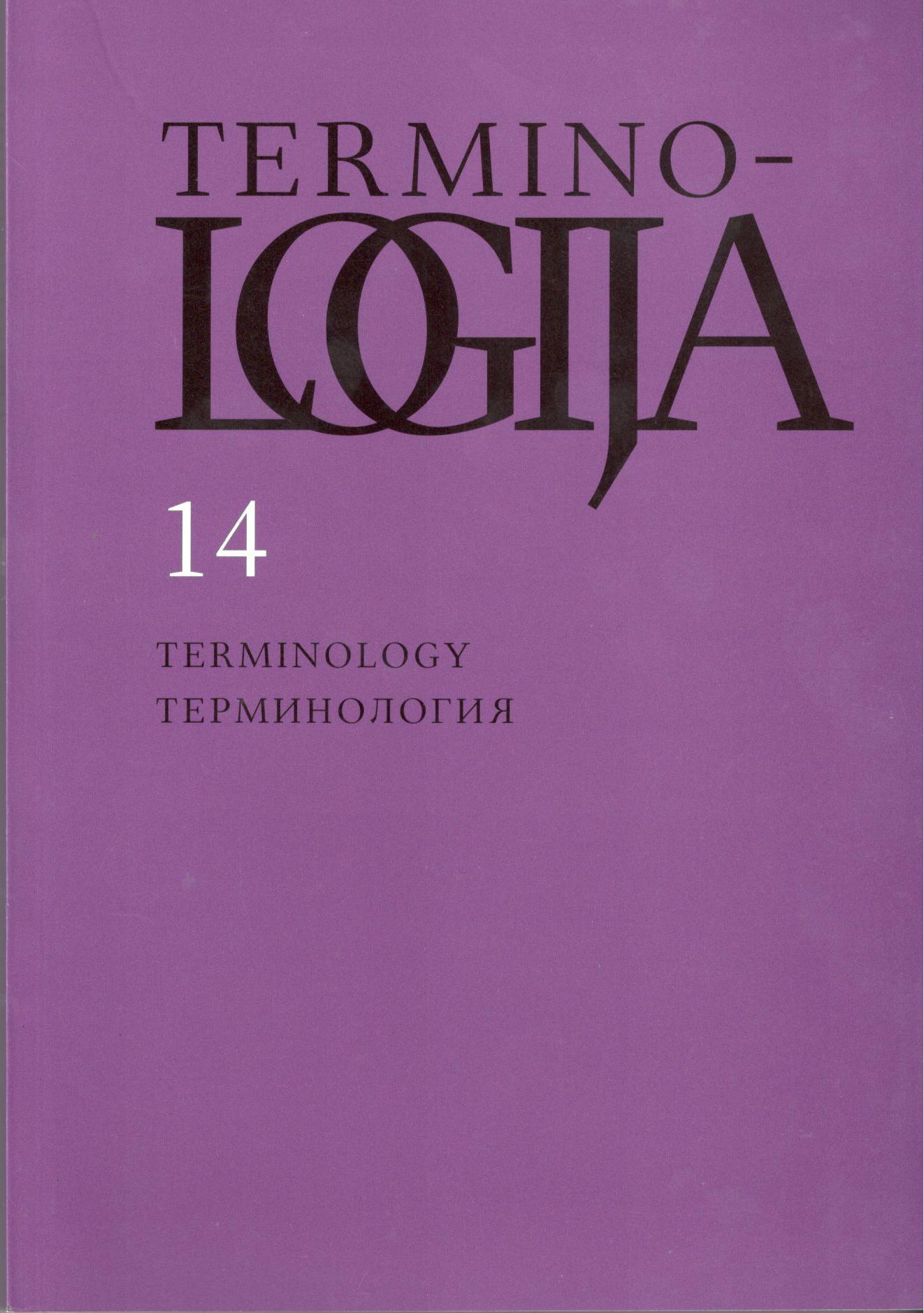Kai kurie sinoniminių religijos terminų vartosenos atvejai katekizmuose (XVI a. ir XIX a. galas – XX a. pradžia)
Some cases of the usage of synonymous terms of religion in catechisms (16th century and the end of 19th –beginning of 20th centuries)
Author(s): Aušra RimkutėSubject(s): Language and Literature Studies, Lexis, Descriptive linguistics, Baltic Languages, Philology
Published by: Lietuvių Kalbos Institutas
Keywords: religion terminology; synonymous terms;catechisms;
Summary/Abstract: Synonymy is particularly characteristic to the initial stages of development of terminology, when the most suitable term for naming the concept is not yet chosen and a few terms (synonyms) and (or) variants of terms, one of which frequently is a barbarism, are in use at the same time. The objective of this article is to discuss the usage of synonymous terms of religion used next to each other in catechisms from the initial stage of the development of written terminology of religion (16th century) and the period of formation of modern Lithuanian (end of 19th – beginning of 20th centuries). Synonymous terms of religion used in different places in catechisms were not investigated.This article deals with varying synonymy of terms of religion in catechisms from 16th century – Katechismusa Praʃty Szadei, Makʃlas ʃkaitima rаʃta yr gieʃmes del krikʃcʒianiʃtes bei del berneliu iaunu naujey ʃuguldytas (1547) by Martynas Mažvydas, Kathechismas arba mokslas kiekwienam krikszczionii priwatvs. Paraszitas per D. Iakvba Ledesma... Jgulditas i Lięuvio Ląnkiʃʒko ing Lietuwiʃʒka per Kuniga Mikałoiu Daugʃʒa Kánonika ʃʒemaicʒiu (1595) by Mikalojus Daukša and Katekizmas (1598) by Merkelis Petkevičius and from catechisms published at the end of 19th and the beginning of 20th centuries – Mokłsas Rimo Kataliku (1879), Trumpasis Кип. Filochowskio katekizmas (1901) and Katakizmai katalikiszki. Visureikalingiausi dėl vaikų ir žmonių praszcziokų su Lementoriu ir Ministranturu (1903). Synonymous terms of religion (one-word or word combinations) in catechisms are most frequently given in brackets or as a footnote, sometimes they are connected using the conjunction arba or separated by comma. Frequently the synonym of a term is not of Lithuanian origin, for instance, tikėjimas arba viera (faith) MK 28, lokamstva arba godulystė (greediness) MRK 430; atlaidai arba atpuskai (wakes, feast) KK 38, dorybė arba cnata (virtue) KK 40; apeigos (ceremonijos) bažnyčios šv. (church rituals) MRK 24, kančia (mūka) (Calvary) MRK 301, kruvina kančia (mūka) (Calvary) MRK 319, malonė (mylista) Dievo (grace of God) KK 12, nustojimas vilties (nodiejos) (loss for hope) MRK 431, pragaras (pekla) (heli) MRK 144, stebuklas (čiūdas) (miracle) MRK 81 and others. In some cases the non-Lithuanian word is given first – amžina mūka (kančia) (eternal tornment) KK 16, smertis (mirimas) (death) KK 16; desperacija (nusiminimas) (despair) MRK 431, Komunija (arba dalyvavimas) (Communion) TFK 36. The conclusion can be drawn that there were attempts to propose Lithuanian words in catechisms. Synonymy of terms of religion shows that terminology of religion was being created, ordered and normalized not only at the initial stage of its development in the 16th century, but also at the end of 19th and the beginning of 20th centuries as well.
Journal: Terminologija
- Issue Year: 2007
- Issue No: 14
- Page Range: 135-145
- Page Count: 11
- Language: Lithuanian

